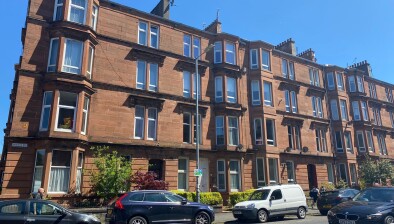Mike Dailly: Rent law must change to prevent profiteering at expense of poor
A new law is required to tackle high rents in Scotland because actions to date have failed to make an impact, argues Mike Dailly.

Mike Dailly
Truth be told we haven’t done much to address unfair rents for more than a century in Scotland.
The 1965 Rent Act introduced a comprehensive system of fair rents across the UK anchored in local market rents. This system was updated and repeated for Scotland in the 1984 Rent (Scotland) Act.
The test of a fair rent in section 48 of the 1984 Act was determined in relation to the current rents of comparable property, having regard to the age, character, and locality of the dwelling-house in question. The problem with open market fairness is if all landlords put their rents up, tough luck, everyone has to pay more.
Fairness doesn’t come into free market economics.
In 1988, the Thatcher government wanted to encourage an expansion of the private rented sector (PRS) so rent control was deregulated along with the removal of security of tenure for tenants. In 1999, the Scottish PRS represented five per cent of all households. In the last 15 years it has trebled in size and now accounts for over 15% of all Scottish homes.
When the Scottish Government introduced its 2016 Private Tenancies (Housing) (Scotland) Act to provide more security of tenure for tenants it fell into an old trap on fair rents. Section 32 of 2016 Act is essentially a revamp of the open market fairness test of 1965. The Scottish Government’s new thinking was to introduce the ability of local authorities to apply for a rent pressure zone (RPZ).
Two problems with RPZs. Not one council has ever applied for one. It could be suggested they never will as no-one collects the PRS data required to do so.
Second, even if there was an RPZ it would only restrict rent increases to inflation plus 1% – the consumer price index (CPI) – plus whatever a rent officer thought was fair on top of that.
Last year the average rent increase across Greater Glasgow was 5.8%, while CPI was 1.3%. If we consider the Lothians and Greater Glasgow over the last nine years, PRS rents have increased by 40%. That’s double the rate of inflation. The Scottish Government’s action on fair rents hasn’t worked. It’s irrelevant.
What worked more than a hundred years ago was a rent cap. When the First World War began landlords took advantage of the pressure on housing supply by profiteering with massive rent hikes.
Women’s movements were formed across Glasgow with the first active resistance in Govan, led by Mary Barbour. They were successful. They secured the introduction of the 1915 Increase of Rent and Mortgage Interest (War Restrictions) Act. This ground-breaking legislation retrospectively capped and froze rents at August 1914 prices for the duration of the war and for a period thereafter.
Economic or regulatory price caps are not as unusual as you might think. Our energy regulator, Ofgem, has the power to cap energy prices. The UK minimum wage is of course a wage floor cap.
A few years ago, HM Treasury allowed the Financial Conduct Authority to introduce a price cap for short-term credit to tackle the excessive profits being made on pay-day loans, and the over indebtedness of consumers with repeated roll-overs of loans.
The fastest growth in severe poverty in Scotland has been in the PRS. 50,000 children are in severe poverty in the Scottish PRS.
The recent report on UK poverty by the Joseph Rowntree Foundation (JRF) confirms Scotland has a lower overall poverty rate than England or Wales. The JRF notes “the difference in rates between Scotland and the rest of the UK is mainly due to lower rents in the social housing sector as well as Scotland having a higher proportion of social rented properties”. Affordable rent is essential to reducing poverty and human misery in our society.
Since 1980, half a million council and housing association homes in Scotland were lost through the right to buy scheme. Many of these homes are now in the PRS. Scotland’s PRS isn’t building new homes, it’s recycling former council and housing association stock for the pursuit of profiteering at the expense of those least able to afford it.
We need change. We need to fix the power imbalance in our society if we are to meaningfully tackle poverty and social injustice.
Govan Law Centre is backing Pauline McNeill MSP’s Fair Rent (Scotland) Bill, and I’m happy to help Pauline draft her Bill and accompanying documents over the next few weeks.
The Bill would cap PRS rents at no more than CPI plus one per cent per annum. It would introduce an objective legal mechanism for rent to be lowered where it was unfair and unjust. It would require private landlords to disclose all of their rent charges at the point of re-registration as a landlord, in order for a full dataset of the sector to become available.
It would empower tenants to challenge unfair rents.
- Mike Dailly is solicitor advocate at Govan Law Centre
This article was originally published in The Herald








